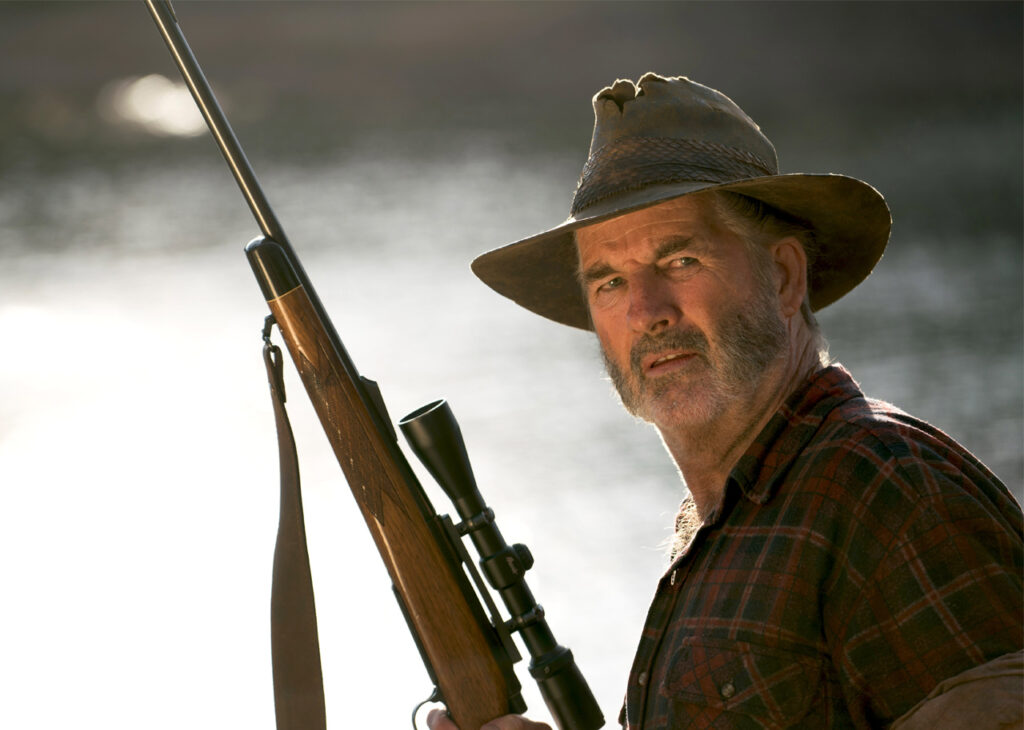
The Subversion of Horror Tropes in Wolf Creek Season 1
Australian television has a long history of producing gritty dramas and crime thrillers, but horror—especially horror with complex, layered protagonists—is rare. When Wolf Creek was adapted into a six-part series in 2016, it had every opportunity to lean into formulaic slasher tropes. After all, it was based on one of Australia’s most infamous horror films, featuring one of cinema’s most sadistic killers: Mick Taylor. But the series did something different. It turned the narrative on its head by introducing Eve Thorogood (Lucy Fry), a protagonist unlike any Australian TV has seen before. More than just a final girl, Eve is a force of nature, a character who upends every expectation of the genre.
Horror and revenge thrillers traditionally pit a predator against a survivor, usually with a clear distinction between victim and villain. Wolf Creek rewrites that dynamic by making Eve the aggressor. The series begins with her being the sole survivor of Mick Taylor’s massacre of her family. But rather than retreating, she embarks on a relentless quest for vengeance. Her transformation from victim to hunter is slow, methodical, and deeply psychological. She doesn’t just want revenge—she becomes consumed by it. Her journey leads her deeper into the Outback’s underbelly, forcing her to cross moral lines most protagonists wouldn’t dare approach.

This shift in agency makes Wolf Creek stand out from typical slasher narratives. Instead of a young woman running for her life, Eve is the one stalking Mick. She manipulates and fights to get closer to her goal. But what makes her character truly compelling is that the writing never simplifies her into a caricature of vengeance. Eve is neither a superhero nor a cold-blooded assassin—she remains deeply human, walking a fine line between obsession and survival.
Many female leads in Australian dramas fall into predictable tropes: the long-suffering wife, the rebellious teen, the high-powered woman struggling with her personal life. Eve is none of these. Her arc is subtle, restrained, and brutally real. There are no overwrought monologues, no predictable romantic subplots shoehorned in for the sake of drama. Instead, the show trusts Lucy Fry’s electric performance to carry the emotional weight of Eve’s transformation, allowing her trauma and obsession to unfold in quiet, often chilling moments.
One of the most interesting relationships in the series is between Eve and Detective Sullivan Hill (Dustin Clare). Their connection is unlike anything typically seen in horror-thrillers. It’s not a standard love story, but a subtle and complex dynamic built on mutual fascination and unspoken longing.
Sullivan starts off as the law enforcement figure determined to stop Mick Taylor, but he quickly becomes personally invested in Eve’s quest. In many ways, he is the audience’s surrogate—watching, unable to look away, drawn to her despite knowing how dangerous her path is. He comes to genuinely care for her, but Eve remains elusive, never fully allowing herself to be “saved.” Her singular focus on revenge makes her emotionally unavailable, yet the chemistry between them lingers beneath the surface. Sullivan’s growing obsession with Eve mirrors the audience’s—he wants to understand her, to help her, but she is always just out of reach. The fact that their relationship remains understated makes it all the more powerful and intoxicating.

What sets Wolf Creek apart as one of the best-written Australian series is its commitment to character over spectacle. Where many horror series rely on shock value and jump scares, Wolf Creek builds tension through psychological depth and atmosphere. In particular, the Outback settings lend a brutal and desolate atmosphere that mimic Eve’s own journey.
The writing never hand-holds the audience or forces exposition-heavy backstories. Instead, it allows Eve’s journey to speak for itself. Her gradual descent into darkness is believable because it’s written with patience and precision. She doesn’t become a warrior overnight. She struggles, she fails, she makes morally ambiguous choices. This makes her one of the most compelling protagonists Australian television has ever produced.
Season 1 of Wolf Creek is a case study in how to subvert genre expectations while delivering a gripping, character-driven story. Eve Thorogood is a revelation, a protagonist who defies easy categorisation, embodying both the victim and the hunter. The series takes the grim, nihilistic world of Wolf Creek and injects it with something fresh: a woman who refuses to be another statistic in Mick Taylor’s body count.
For fans of psychological thrillers and horror that values character as much as terror, Wolf Creek Season 1 remains an absolute must-watch. It’s a masterclass in writing, proving that even in a genre often defined by clichés, there is always room for reinvention. It’s not only the best Australian TV has to offer, it’s up there with the best seasons of genre television of all time.
